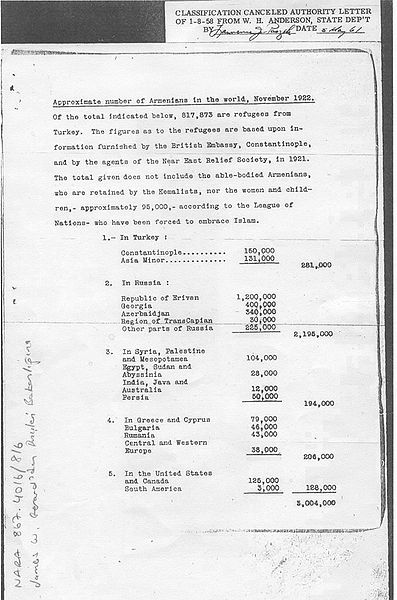ADAM KLASFELD

MANHATTAN (CN) – Some five years ago, Turkey’s soft power suddenly swelled in the United States as the country’s lobbyists and pro-government charities received millions in newfound funding.
That was the same year that leaked tapes appeared to show then-Prime Minister Recep Tayyip Erdoğan instructing his son Bilal to dump massive amounts of money tied to a multibillion-dollar money-laundering scheme.
“Now, what I say is, you take everything that you have in the house out,” Erdoğan could be heard telling his son, in recordings quickly viewed by millions on YouTube and translated from Turkish by the now-shuttered Turkish newspaper, Zaman.
“What can I have on me, Dad,” Bilal replied in that transcript. “There is your money in the safe.”
Made public in early 2014, the tapes depicted Erdoğan fretting that Istanbul police conducted home raids on the top officials of his ruling Justice and Development Party and his then-ally Reza Zarrab, a gold trader charged with corrupting them. The Turkish government disputed its authenticity, but academic researchers doubted claims of doctoring.
Zarrab would implicate Erdoğan in a bribery-fueled conspiracy to violate U.S. sanctions against Iran three years later in a New York federal courtroom — a development Erdoğan tried to head off by lobbying intensely with reported help from President Donald Trump and his attorney, Rudy Giuliani.

Courthouse News studied the Justice Department’s foreign lobbying database to identify the five largest recipients of money linked to the Turkish government between 2014 and 2018: Amsterdam & Partners, Ballard Partners, Gephardt Group, Greenberg Traurig, and Mercury Public Affairs. The budgets of those five, including their subcontractors, more than quadrupled collectively during this time frame, from more than $1.7 million in 2014 to more than $7.3 million in 2018.
Gephardt Group, a longtime lobbyist for Turkey named for the Democratic congressman who founded it, cut ties with its government at the end of 2016. The new guard of registered Turkish agents that replaced Gephardt would be deeply tied to Trump and his associates.
Budgets of pro-Turkey charities linked to both Erdoğan and Trump also ballooned during this period.
Bilal Erdoğan, the son from the 2014 recordings, signed the incorporation papers of the U.S.-based charity Turken Foundation just a few months after audio of him and his father caused an uproar. Turkey’s main opposition party unearthed Turken’s IRS records showing that tie in a document request. Public records show that another of Erdogan’s children, Esra Albayrak, sat on Turken’s board.
As a tax-exempt 501(c)3 corporation, Turken does not have to disclose its donors, but it reported receiving a more than $24 million contribution the next fiscal year. Spending that money lavishly, the charity paid more than $17.5 million for the sites where it is building a 32-story skyscraper in midtown Manhattan, for use as Islamic student housing. It also bought legendary boxer Muhammad Ali’s farm in Michigan earlier this year for a reported $2.5 million.
Hacked emails published by WikiLeaks showed Bilal Erdoğan’s interest in a different midtown Manhattan property, valued at $25 million, that Trump Organization representative Elena Baronoff had been offering in 2013.
Known as Trump’s “Russian hand,” Baronoff died of leukemia two years later.
Turken did not reply to an email requesting comment.
Here is a breakdown of the top players in pro-Turkey lobbying and charity between 2014 and 2018.
Gephardt Gets Out
More than a decade ago in 2009, a ProPublica investigation found that the Turkish government’s lobbyists contacted members of Congress more often than those from any other country.
A year before that article, Turkey first signed its contract with former Missouri Representative Richard Gephardt. Turkey had been successful in projecting an image of Erdoğan as a bridge between political Islam and liberal democracy, but Erdoğan’s corruption scandal — and his response to it — stained that international goodwill starting in late 2013.

Turkey’s President Recep Tayyip Erdogan waves to supporters of his ruling Justice and Development Party (AKP) in Ankara, Turkey, on June 25, 2018. (Presidency Press Service via AP, Pool)
Once the leaked tapes of his son hit the internet, Erdoğan tried to ban Twitter and purge the prosecutors investigating him. Records that Gephardt disclosed under the Foreign Agents Registration Act show the firm spinning issues of “internet freedom” in Turkey with U.S. legislators and responding to the concerns of the House Foreign Affairs Committee about “The Future of Turkish Democracy.”
Amid Erdoğan’s autocratic rise, Gephardt Group hired five subcontractors to help manage Turkey’s bruised international image: Dickstein Shapiro LLP and LB International Solutions in 2014; Greenberg Traurig and Capitol Counsel in 2015; and longtime congressional staffer Brian Forni in 2016.
Gephardt could not be reached directly. The firm’s vice president, Greg Carnrick, did not respond to phone and email requests for comment.
Asked by phone to explain why the firm terminated its eight-year contract with the Turkish government, Janice O’Connell — one of Gephardt’s former lobbyists for Turkey — supplied a one-word answer.
“No,” O’Connell replied, abruptly hanging up the phone.
Some Gephardt subcontractors continued to work for Greenberg Traurig, a billion-dollar legal powerhouse that took over Turkey’s lobbying contract the same year Giuliani took on Zarrab as a client.
Giuliani’s Role Grows
In 2017, leading up to the Zarrab trial, the Turkish government ratcheted up its legal, diplomatic and lobbying offensive. Ditching the firm led by the Democratic Gephardt, the Turkish government signed on two firms connected to influential Republicans.

Ballard Partners, whom Politico dubbed the “Most Powerful Lobbyist in Trump’s Washington,” made more than $4 million on two contracts: nearly $2 million from the Turkish embassy and more than $2 million from Halkbank, the Turkish state-run bank indicted just this past fall in New York. For that sum, the firm dispatched a trio of agents deeply tied to Trump’s State Department, Treasury Department and White House.
The second firm, Greenberg Traurig, tilted slightly Republican in its political donations from 2016, but it had a partner with a direct line to Trump: Giuliani. The former New York City mayor shuttled between the White House and Turkey’s capital of Ankara to push for a prisoner swap that would have blocked damning testimony from Zarrab that accused Erdoğan of ordering billions of dollars in illicit trades through Halkbank.
Giuliani’s growing reputation as a shadow secretary of state for the Trump administration, in both Turkey and Ukraine, has alarmed Democrats on Capitol Hill. Seven senators signed a letter over a year ago that asked the Department of Justice to assess whether Giuliani has complied with registration requirements for foreign agents.
Senator Tammy Duckworth, one of the signers, is still waiting for the Justice Department to respond after following up on that inquiry last month.
“I’ve asked the Justice Department twice … and I have not gotten a reply from that,” Duckworth told Courthouse News in a phone interview. “So, I’m not quite sure how Mr. Giuliani, who’s neither been elected by the American people nor confirmed by the United States Senate is out there conducting what amounts to foreign policy on behalf of the president because he’s the president’s personal attorney.”
Following publication of this story, Giuliani called the suspicions that he may have violated foreign lobbying requirements a “maliciously false claim.”
“Michael Mukasey and I were criminal counsel in a pending proceeding, seeking a prisoner exchange for Zarrab,” Giuliani said. “The FARA and lobbying laws have complete exclusion for lawyers representing a client in a proceeding.”
The senators stopped short of accusing Giuliani of breaking the laws regarding foreign agents. Their letter requested an inquiry into the question from the Department of Justice, which did not respond to a request for comment.

Senator Tammy Duckworth raises concerns about President Donald Trump’s conflicts of interests in a June 20, 2017, press conference. (Photo courtesy of Senator Duckworth’s office)
Duckworth also called it uncertain whether “Mr. Giuliani is also getting some personal gain from some of his actions, for example, in Turkey.”
Court documents show that Giuliani was paid directly by Zarrab, who admitted to the money-laundering scheme.
Greenberg Traurig and Giuliani cut ties in 2018 as the former mayor ramped up his work for Trump.
The firm’s shareholder Robert Mangas, who signed the Turkey lobbying contract, claims never to have spoken to Giuliani on any matter related to Turkey.
“Mr. Mangas and Mr. Giuliani never worked together on any matters related to Turkey, including the Zarrab case,” the firm’s managing director Jill Perry said.
Greenberg Traurig, whose donations have skewed Democratic in 2018, made inroads on both sides of the aisle in Congress. The firm’s most recent filing reported numerous emails and two meetings apiece with Republican Senator Lindsey Graham and the chief of staff for Representative Ilhan Omar, the only member of the Democratic Party not to vote to recognize the Armenian genocide or approve sanctions against Turkey. Omar’s office did not respond to a request for comment.
The firm raked in more than $5 million in fees and expenses from Turkey, paying nearly $2 million of that amount to subcontractors for the firms Capitol Counsel, Baker Donelson and LB International Solutions, whose president, Lydia Borland, helped a Turkish political action committee donate to U.S. politicians.
Enemies of Erdogan
During his clampdown on perceived opponents, Erdoğan went to war against his party’s former allies: followers of Fethullah Gülen, a Turkish-born cleric living in self-imposed exile in rural Pennsylvania. The main firm in charge of the Turkish government’s anti-Gülen offensive was Amsterdam & Partners, which hired at least 14 subcontractors, records show.
Those arrangements were properly disclosed under the Foreign Agents Registration Act. Federal prosecutors believe that the Turkish government nestled its way into murkier relationships with at least one Trump ally.
Trump’s former national security adviser Michael Flynn would admit that he concealed the Turkish government’s ties to his anti-Gülen blitz, a secret foreign influence initiative branded “The Truth Campaign.”

Pennsylvania-based Turkish cleric Fethullah Gulen (Photo credit: Voice of America)
The Dutch company Inovo BV paid $600,000 to Flynn Intel Group under the contract, which included an Election Day op-ed under Flynn’s name in The Hill.
“The forces of radical Islam derive their ideology from radical clerics like Gülen, who is running a scam,” the editorial read. “We should not provide him safe haven.”
Flynn’s column compared Gülen to Iran’s mullahs and Osama bin Laden, and court papers would later show that Flynn’s Turkish proxies had written several passages. One of the alleged ghostwriters, Trump transition team member Bijan Kian, would later be convicted of unregistered foreign lobbying only to have that conviction overturned. Inovo’s founder Ekim Alptekin was also indicted but did not appear in court and is presumed to be living in Turkey.
The Wall Street Journal reported that Flynn discussed a plan with Turkish officials to “whisk” Gülen from his Pennsylvania home and back to Turkey outside the extradition process. Flynn denied that he tried to kidnap the cleric, but ex-CIA Director James Woolsey told the paper he witnessed the conversation.
Other Turkish-funded media offensives against Gülen were disclosed. Amsterdam & Partners, led by attorney Robert Amsterdam, made nearly $1.3 million in fees by vilifying Gülen for the Turkish government, and the firm paid more than a dozen subcontractors a nearly equivalent amount to assist in the task.
During a phone interview, Amsterdam denied that his crusade against Gülen was financially motivated.
“It’s more out of dedication to the cause than for profit,” the attorney remarked, adding he even “took a haircut” in that pursuit.
That cause has found multiple devotees in the Trump administration, including Giuliani, whom Bloomberg reported pushed to cut government grants to Gülen-affiliated schools across the United States.
“That’s got nothing to do with me,” Amsterdam said of Giuliani.
Amsterdam has been a vituperative critic of Gülen, echoing the Turkish government’s depiction of the cleric as a shadowy cultist behind the 2016 failed coup attempt against Erdoğan’s government.
Amsterdam even purchased an anti-Gülen billboard near his home in Saylorsburg, Pennsylvania. The billboard, which showed Gülen’s face next to the words “School Children at Risk,” had been intended to run on a highway in the village that the cleric calls home.

Bijan Kian, a onetime business partner to former national security adviser Michael Flynn, leaves the FBI Field Office on Dec. 17, 2018, in Washington. (AP Photo/Jacquelyn Martin)
Amsterdam admitted to having paid for it but claimed that it never went up because of pressure from Gülen’s organization.
Alliance for Shared Values, an umbrella organization associated with Gülen’s movement, responded that they were “not aware,” but “not surprised,” that Amsterdam attempted to put that message near the cleric’s home.
“Through his agents, the Erdoğan government made several attempts to defame and harass Mr. Gülen and visitors to the retreat center where he lives,” the group’s executive director Alp Aslandogan said. “These efforts include organizing loud and profane protests, mailing defamatory fliers to neighbors, flying planes with defamatory signs and showing a defamatory film at a local theater.”
The Gülen movement, also known as Hizmet, the Turkish word for service, describes itself as a group dedicated to interfaith dialogue. The Obama administration rebuffed Turkish pressure to extradite Gülen, with former Vice President Joe Biden emphasizing the U.S. courts require due process and evidence of wrongdoing.
“Only a federal court can do that,” Biden said in August 2016. “Nobody else can do that. If the president were to take this into his own hands, what would happen would be he would be impeached for violating the separation of powers.”
Referring to the multimillion-dollar campaign against Gülen, Aslandogan added: “If the facts were on the Erdoğan government’s side, they would have spent far less and had even an ounce of success.”
Reaching out to major TV, radio and print outlets, Amsterdam’s subcontractor Stroud Communications helped tout his book titled “Empire of Deceit,” accusing Gülen-affiliated charter schools of fraud. The title inspired the parody website “Empire of the Deceit” by Amsterdam’s critics, quoting a Globe & Mail editorial that describes the Canadian attorney as a “legal gun-for-hire and a public relations svengali.”
Mercury Public Affairs, which made more than $87,000 from its contract with Amsterdam, later registered as a foreign agent for work with two Turkish clients directly. The firm made $1.6 million the year after announcing a major hire, Bryan Lanza, who served as Trump’s communications director on the presidential transition team.
Both times that Trump announced a troop withdrawal from Syria — moves in late 2018 and 2019 that stunned top U.S. security officials — Trump had just spoken on the phone with Erdoğan, and Mercury rushed to defense the decision.
Mercury, which has not responded to press inquiries, circulated an editorial by top Turkish diplomat Mevlüt Çavuşoğlu describing the United States’ longtime Kurdish allies as terrorists and another by Erdoğan, printed in The New York Times.
Business or Pleasure at Trump Hotel?
Having a new agent with deep ties in the Trump White House paid dividends for Mercury Public Affairs in taking on two major Turkish nonprofit groups as clients: Turkey-U.S. Business Council (TAIK) and the American Turkish Council (ATC).

Every year, both charities join forces to host a lavish U.S.-Turkish Conference that brings together powerful military, business and political figures from both countries to mingle and discuss the future of bilateral relations. The last two conferences took place at the Trump International Hotel in Washington.
TAIK’s current chairman Mehmet Ali Yalçındağ is Ivanka Trump’s former business partner for Trump Tower Istanbul. Alptekin, who was indicted in Flynn’s “Truth Campaign,” is a former chair.
Under the Foreign Agents Registration Act, Mercury had to disclose all of its contacts with government officials and media representatives. Lanza repeatedly called and emailed the Commerce Department’s Deputy Secretary Earl Comstock on behalf of TAIK in 2018.
The next year, Commerce Secretary Wilbur Ross would be one of the conference’s “Distinguished Guests,” posing in a photograph next to Yalcindag.
Turkish Coalition of America, which organizes the 109-member-strong “Turkey Caucus” of U.S. Congress members, struggled for cash for much of this past decade, reporting negative revenue in 2014 and 2016. In 2017, the charity reported $4.6 million in revenue, by far the largest in that decade, after receiving a large grant from the Turkish Cultural Foundation, another Washington-based charity.
The coalition’s president Lincoln McCurdy emphasized that the charity complies with nonprofit rules in service of its mission to promote public education.
“TCA’s limited lobbying efforts are fully independent and are neither coordinated with nor controlled by any other organization or lobbying campaign, including that of the government of Turkey,” McCurdy, a former consul for commercial affairs at the U.S. Consulate General in Istanbul, said in an email.
The lobbying expenditures reported by the group represent a small fraction of what it spends in total.
Turkish Heritage Organization, a new nonprofit that sprung up in 2015, burst quickly into prominence with more than $3 million in contributions over the course of three years.
When the House was still controlled by Republicans in 2017, its Committee of Foreign Affairs heard testimony from the organizations president, Ali Cinar, about the supposed threat to Turkey’s democracy from Gülen and Kurdish militants, not its strongman leader, Erdoğan.
“There is no Turkish legislation that includes any provision that would lead to imprisonment of journalists on account of their journalistic work,” Cinar told Congress.
Under Turkey’s constitution, insulting the president is a crime, and Erdoğan’s government by then had become the world’s leading press jailer for two years running. It has held onto that record ever since.













